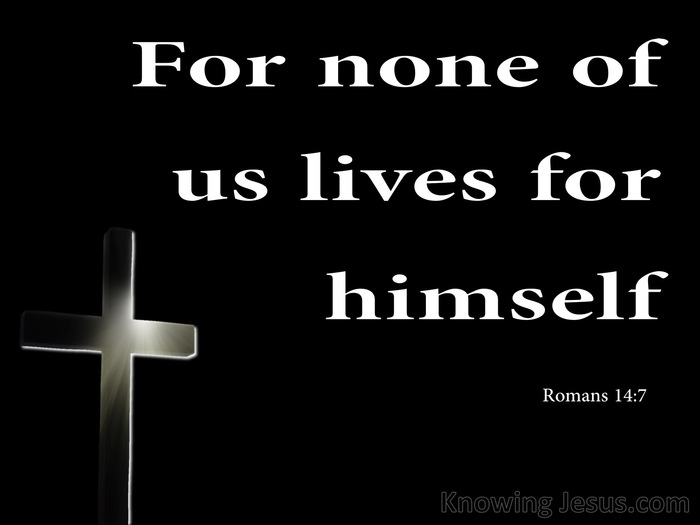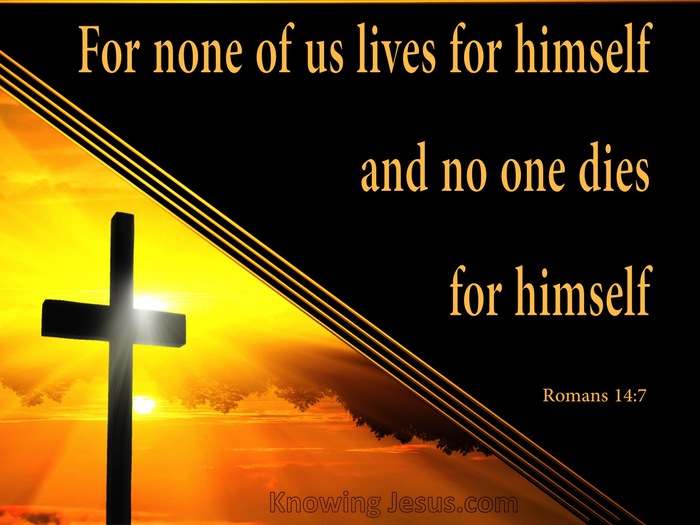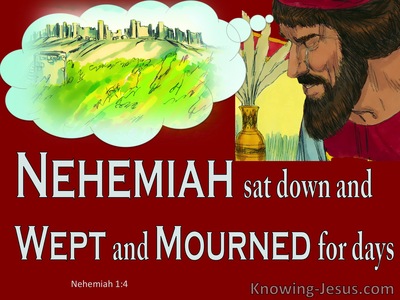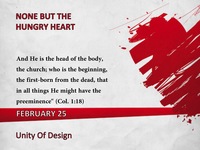◄ What Does Romans 14:7 Mean? ►
For none of us lives for himself, and no one dies for himself.
Romans 14:7(ISV)
Verse of the Day
Legalism and license can become a 'ping-pong' type argument that often rages in Christian quarters, between: 1) The dangers of legalism which replaces the freedom we have in Christ with a string of man-made rules, and the reintroduction of Jewish practices which were set aside at the Cross. 2) The perils of license which abuses the freedoms we have in Christ as an excuse to sin. Neither legalism nor licence are biblical, and Paul warns against both.
Christians are not given a list of legalistic rules and regulations of 'dos' and 'don'ts' in life, which would bring us into legalism, nor do we have 'free rein' to live irresponsibly. We have been set free from the restrictions of the Mosaic Law, or any form of man-made rules and religiosity. We have been given great liberty in our Christian life, but we are entrusted to make wise and godly choices as believers.
We are never to use our freedom in Christ as an excuse to sin. Rather, we have been supplied with a few basic principles in both the gospels and epistles, which we should apply to our own life circumstances so that neither legalism nor license is practiced.
Because believers have the freedom to choose, the conduct of one Christian may differ from another, while both remain within God's will and ethical constricts. Sadly, the glorious freedom that is ours in Christ can become the basis of unfounded criticism of fellow believers, whose choices may conflict with our choices and Paul addresses this issue by explaining: "One person decides in favour of one day over another, while another person decides that all days are the same. Let each one be fully convinced in his own mind."
The Mosaic Law gave Israel very strict instructions about many areas of life including feast days, Sabbath-day observances, and a wide range of rites and rituals. However, in the Church age, we are not under the restrictions of the Law. We are under the freedom of grace and have the liberty to choose how to conduct ourselves in a whole host of circumstances.
Some believers, both in Paul's day and in our own time, consider it important to celebrate the feast days and keep the Sabbath holy. Others do not consider this necessary. Some favour making Sunday a special time of worship, while others prefer to keep every day the same. None are right and none of them are wrong, but Christians who have strong opinions can often become critical of their brothers in Christ who divert from their own, strongly held views and Paul is teaching this ought not to be: "Let each one decide in his own mind what is right for themselves," is his clear directive.
The principle Paul is teaching here, can apply to many areas of life. Christians make choices in a whole range of issues such as what we eat or drink, where we go, or what hobbies we choose. It covers all sorts of tastes and preference in areas like sports and recreation, our manner of living, the work we do, what clothes to wear, what shoes to put on, what songs to sing, or what instrument to play!
What is important is that we live our lives in service to God and do everything for His greater glory. We are to trust in His strength, walk in the light of His love, and honour Him in our actions and choices. We have been bought with a price; the precious blood of Jesus Christ, and everything we say and all the choices we make should be done as unto the Lord and should not cause a conflict between brothers.
There are, of course, certain non-negotiables in Christian doctrine and our walk of faith, such as the deity of Christ and the virgin birth, His incarnation and bodily resurrection, the authority and inerrancy of Scripture, the Tri-unity of the Godhead, the hypostatic union of Christ and His Second Coming, but there are broad Scriptural principles in God's Word that guide us in our daily decisions and personal conduct. And although two Christians may differ in non-essentials of the faith, both have freedom to choose their personal preferences without fear of condemnation.
The life of every Christian should be a consecrated life of singular devotion to our Heavenly Father; a life whose purpose is to glorify God alone, until He is everything in our life and we are nothing. We should recognise that the freedom we have to favour one day over another is a simple matter of individual preference and a choice each believer is permitted to make for themselves by grace, without fear of criticism or condemnation from others, or from oneself.
In whatever sphere of life we discover ourselves to be, and whatever trivial task in which we are employed, may we never forget the price that was paid for the liberty we have in Christ, and may we make our choices in life wisely.
My Prayer
Loving Father, it is my chief complaint that I do not love and serve You as I ought. Help me to accept that I can only do those things that please You as I decrease and You increase in my life. Keep me from falling into any legalistic mindset, or from abusing the liberty I have in Christ through wrong choices. Please help me shed all hidden pride and all appearances of self-importance so that I may be used by You, and I pray that whatever choices I make in the 'non-essentials' of Christian life, I may glorify You in thought, word, and deed. In Jesus' name, AMEN.
Choose a Verse from Romans 14
Romans 14:7 Further Study
- Romans 14:7 in the Parallel Bible
- Romans 14:7 in the Thematic Bible
- Romans 14:7 Cross References
- Romans 14:7 Treasury of Scripture Knowing
- Romans 14:7 Sermons
- Romans 14:7 Prayers
- Romans 14:7 Images
- Romans 14:7 Devotionals
- Choose Chapter
Never miss a post















